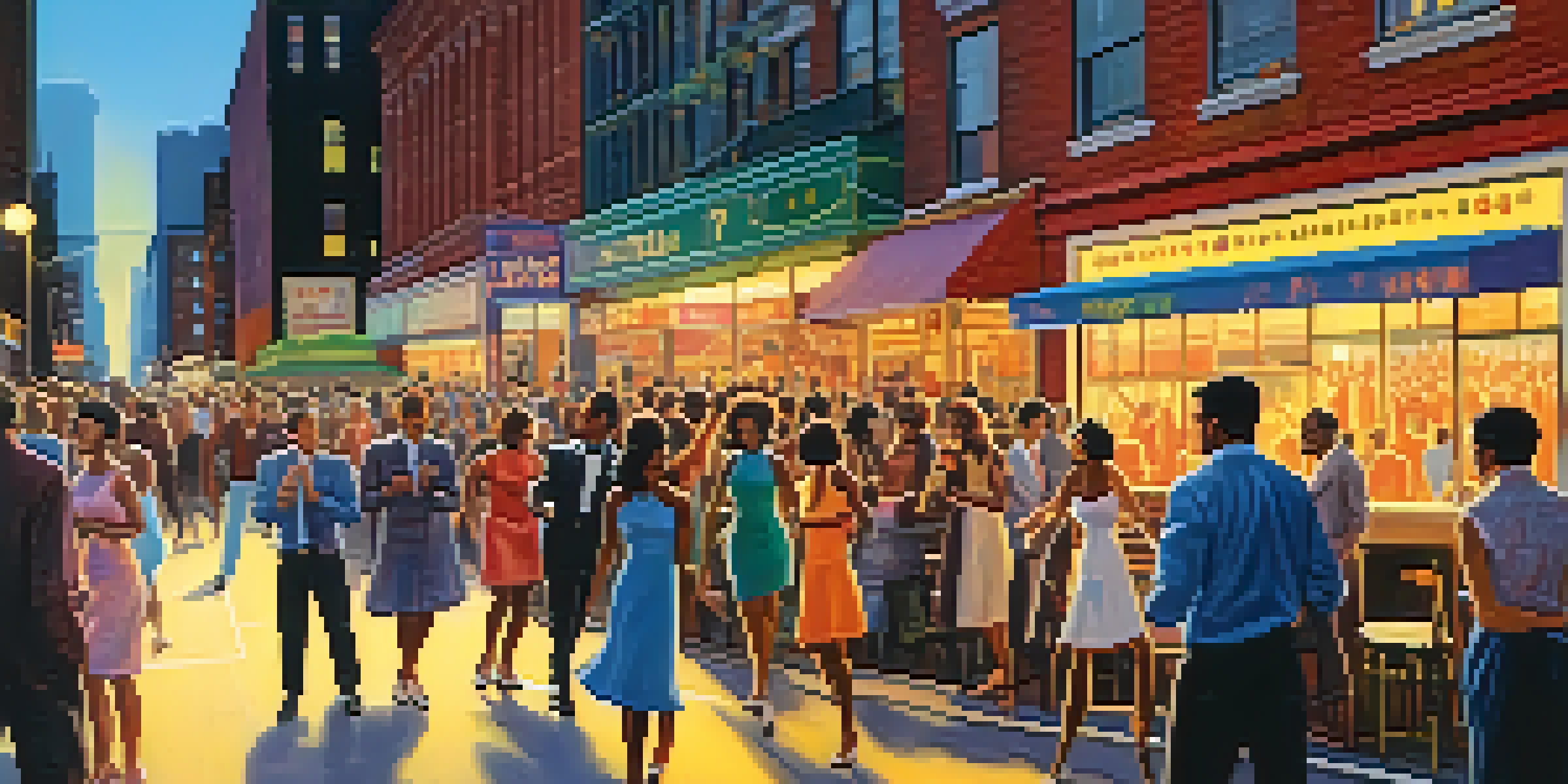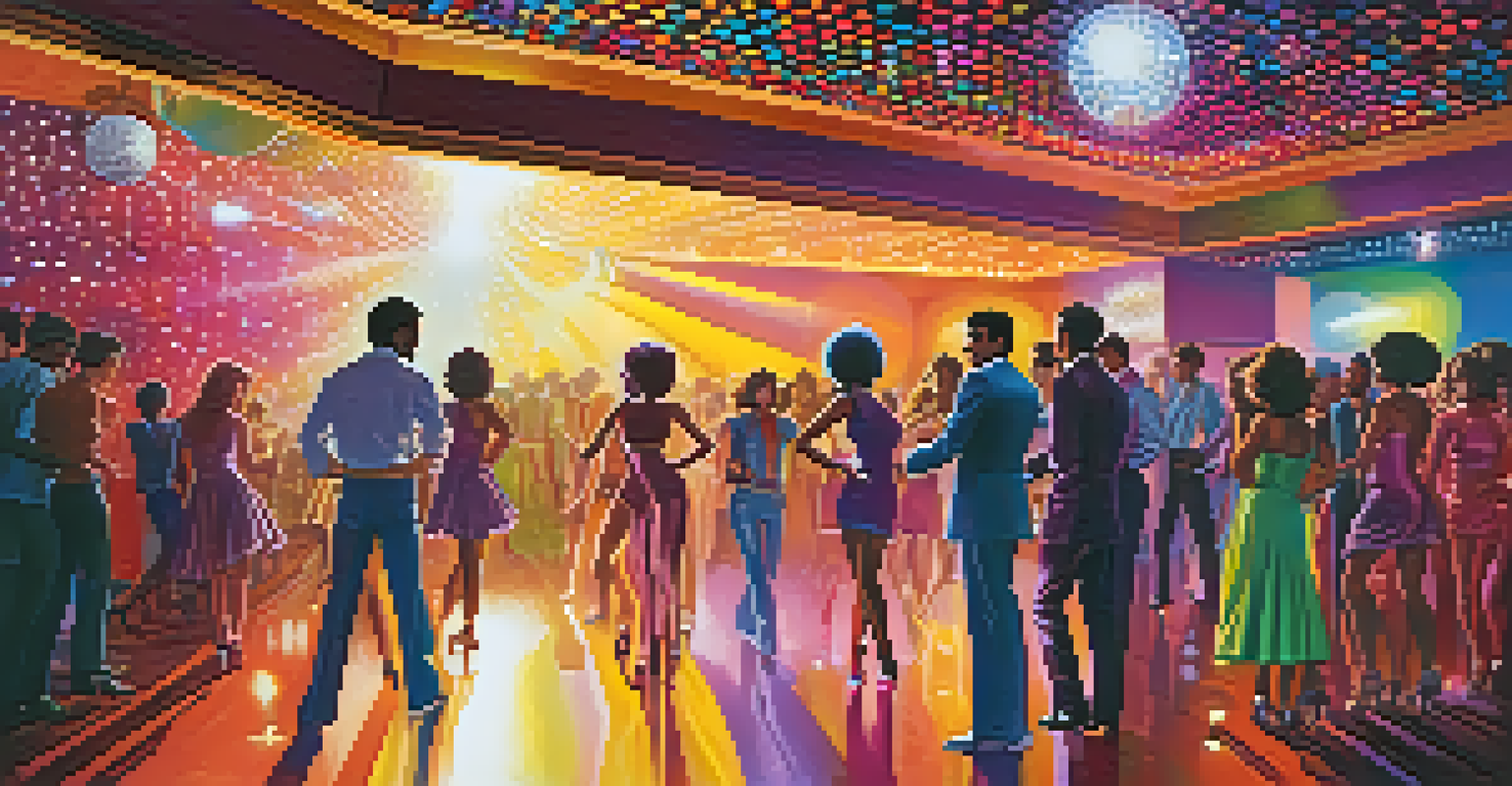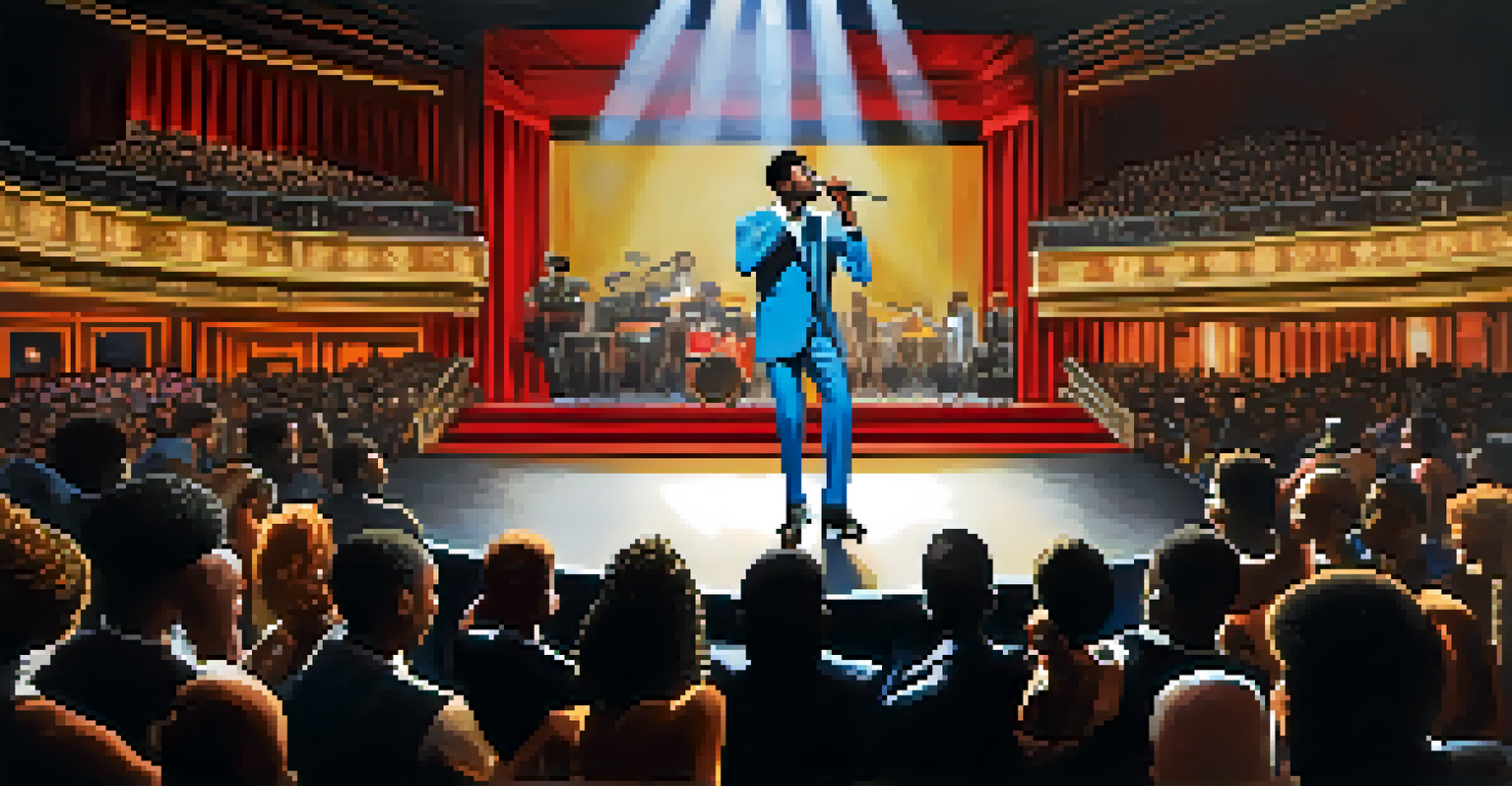The Influence of Motown on New York City Music Styles

The Birth of Motown and Its Cultural Significance
Motown Records, founded in Detroit in 1959, revolutionized the music industry by creating a distinct sound that blended R&B, soul, and pop. This unique fusion not only captivated audiences but also provided a platform for African American artists during a time of social upheaval. Artists like Stevie Wonder and The Supremes became household names, illustrating the power of music as a cultural force.
Motown was a label that was very much about the music, but it was also about the culture. It was about the history of the African American experience.
As Motown's popularity soared, so did its influence beyond Detroit. The label's catchy melodies and polished production resonated across the United States, including New York City, where diverse musical styles were already flourishing. This cross-pollination set the stage for a new era of music, where genres began to intertwine and evolve.
In New York, Motown's success inspired local musicians to experiment with their sounds, blending the essence of Motown with the vibrant energy of the city. This melding of influences would lay the groundwork for the emergence of new styles that would characterize the city's music scene.
Motown's Influence on New York City Soul and R&B
The soulful sounds of Motown significantly impacted the R&B scene in New York City. Artists such as Aretha Franklin and Wilson Pickett drew inspiration from the Motown formula, infusing their music with emotional depth and catchy hooks. This wave of soul music found a warm reception in New York, where audiences were eager for music that spoke to their experiences.

As the 1960s progressed, New York City became a melting pot of musical styles, with Motown's influence evident in countless local acts. Clubs and venues throughout the city buzzed with energy as musicians experimented with the vibrant rhythms and harmonies that defined Motown. This creative environment fostered a new breed of artists who sought to capture the essence of both Motown and the unique New York vibe.
Motown Revolutionized Music Culture
Motown Records blended R&B, soul, and pop, creating a distinct sound that empowered African American artists during a time of social change.
The legacy of Motown in New York can be heard in the works of groups like The Shirelles and The Drifters, who embraced the Motown sound while adding their own local flair. This evolution of R&B paved the way for future generations of musicians, solidifying the connection between Motown and the New York music scene.
The Rise of Disco: Motown's Ripple Effect
The disco movement of the 1970s can trace its roots back to the infectious rhythms of Motown. As artists and producers looked for new ways to engage dance floors, they incorporated the upbeat melodies and lush arrangements that Motown was famous for. This transformation was pivotal in shaping the nightlife and music culture of New York City during this vibrant era.
Music can bring people together like no other art form. It has the power to unite and heal.
Disco clubs like Studio 54 became hotspots where the sounds of Motown-inspired tracks dominated the playlists. Artists such as Donna Summer and Chic drew from the Motown playbook, creating anthems that defined the disco era. The blending of these influences created a dynamic sound that attracted diverse crowds and solidified disco's place in music history.
Motown's influence on disco also highlighted the importance of inclusivity in music. The genre broke down racial and cultural barriers, allowing people from all walks of life to come together on the dance floor, much like the early Motown artists had envisioned. This legacy of unity continues to resonate in New York's music scene today.
Hip-Hop's Roots: Motown's Contribution to Urban Culture
As hip-hop emerged in the late 1970s and early 1980s, the influence of Motown could still be felt. Early hip-hop artists often sampled Motown tracks, incorporating the catchy melodies and grooves into their own music. This practice not only paid homage to the Motown legacy but also showcased the genre's versatility and creativity.
The connection between hip-hop and Motown is particularly evident in the storytelling aspect of the music. Just as Motown artists conveyed poignant narratives through their songs, hip-hop artists like Grandmaster Flash and the Furious Five wove social commentary into their lyrics. This shared focus on storytelling helped solidify the cultural significance of both genres in New York City.
Motown's Impact on NYC Music Scenes
The influence of Motown sparked the evolution of various music genres in New York City, from soul and R&B to disco and hip-hop.
Moreover, the entrepreneurial spirit of Motown founder Berry Gordy inspired many hip-hop artists to establish their own independent labels. This drive for self-expression and ownership became a staple in the hip-hop community, leading to the rise of influential labels like Def Jam and Bad Boy Records. The Motown influence on hip-hop is undeniable and continues to shape the genre's evolution.
The Influence of Motown on New York City Pop Music
Motown's influence extended into the realm of pop music, particularly in New York City, where the pop scene was rapidly evolving. Artists like Madonna and Cyndi Lauper drew inspiration from the catchy hooks and polished production that characterized Motown hits. This blend of styles helped define the sound of the 1980s pop landscape.
As pop music continued to evolve, the Motown formula of strong melodies and emotional delivery became a blueprint for success. Songwriters and producers began to incorporate elements of Motown into their work, creating chart-topping hits that echoed the spirit of the iconic label. This connection to Motown helped solidify New York's place as a pop music powerhouse.
Notably, the crossover appeal of Motown-inspired pop artists contributed to the genre's global reach. The infectious energy and relatable themes found in Motown songs resonated with audiences worldwide, further embedding New York's musical identity within the fabric of pop culture. This legacy endures as contemporary pop artists continue to draw from Motown's rich history.
Modern Music: Motown's Enduring Legacy in NYC
Today, the influence of Motown can still be felt throughout New York City's diverse music scene. Contemporary artists like Bruno Mars and Alicia Keys often pay tribute to the Motown sound, blending it with modern styles to create fresh and innovative music. This ongoing connection to Motown keeps its legacy alive while inspiring new generations of musicians.
Venues that honor Motown's legacy, such as the Apollo Theater, continue to showcase the talents of both established and emerging artists. These spaces serve as reminders of Motown's impact on the music landscape and its role in the cultural fabric of New York City. The spirit of Motown is alive and well in the performances that light up stages across the city.
Legacy of Motown in Modern Music
Contemporary artists continue to draw inspiration from Motown's rich catalog, ensuring its enduring legacy in New York's vibrant music scene.
Furthermore, the resurgence of interest in vinyl records and classic music has led to a renewed appreciation for Motown's rich catalog. As more people discover the timeless melodies and heartfelt lyrics of Motown hits, the genre's influence continues to permeate modern music, demonstrating just how deeply it has shaped New York City's musical identity.
Conclusion: Celebrating Motown's Impact on NYC Music
Motown's influence on New York City music styles cannot be overstated. From soul and R&B to disco and hip-hop, the iconic label's sound has left an indelible mark on the city's diverse musical landscape. As artists continue to draw inspiration from Motown, its legacy remains a vital part of New York's cultural narrative.
The rich history of Motown serves as a reminder of the power of music to transcend boundaries and unite people from different backgrounds. Whether through the infectious grooves of a Motown classic or the innovative sounds of contemporary artists, the spirit of Motown lives on in the heart of New York City.

As we celebrate the enduring impact of Motown, we are reminded of the importance of honoring the past while embracing the future of music. The connections forged by Motown continue to inspire creativity, collaboration, and a shared love for the art of music in New York City and beyond.